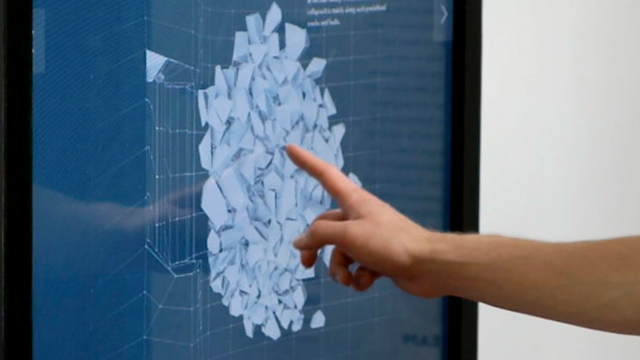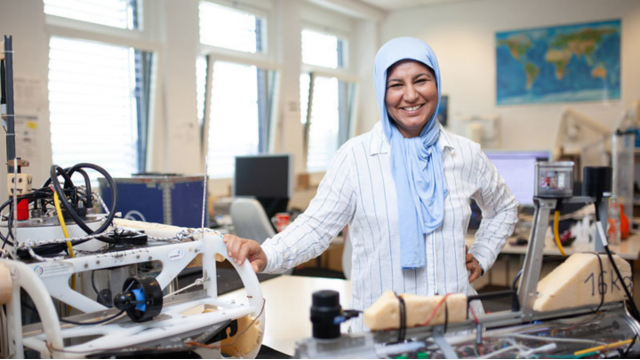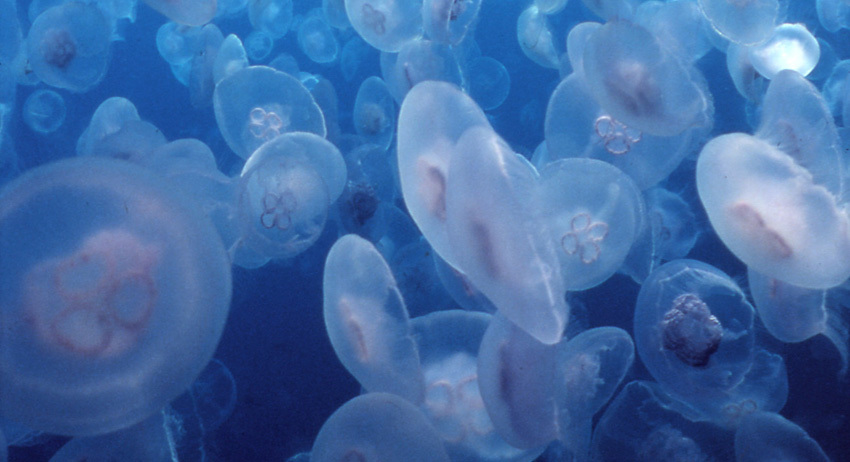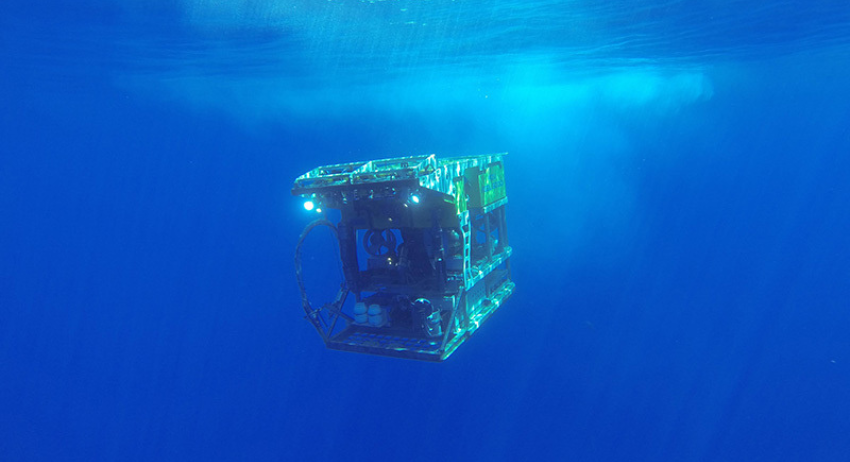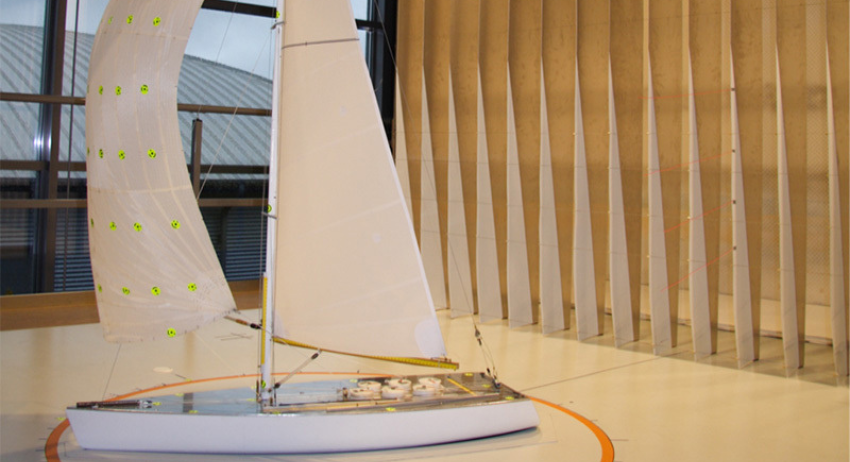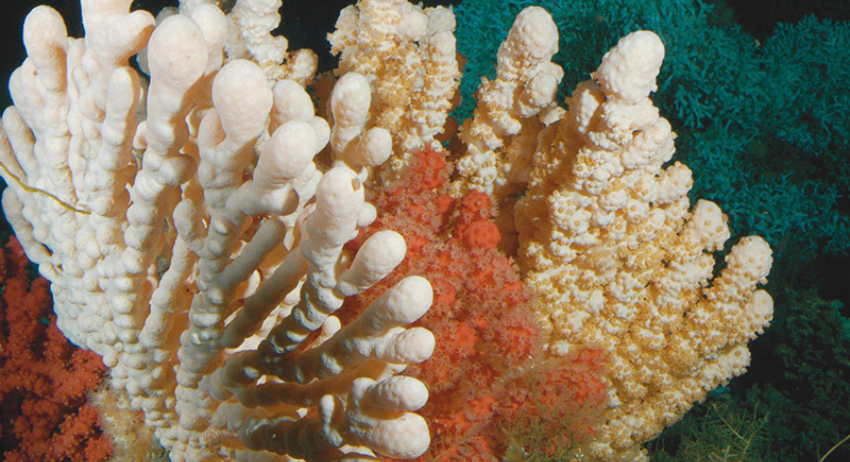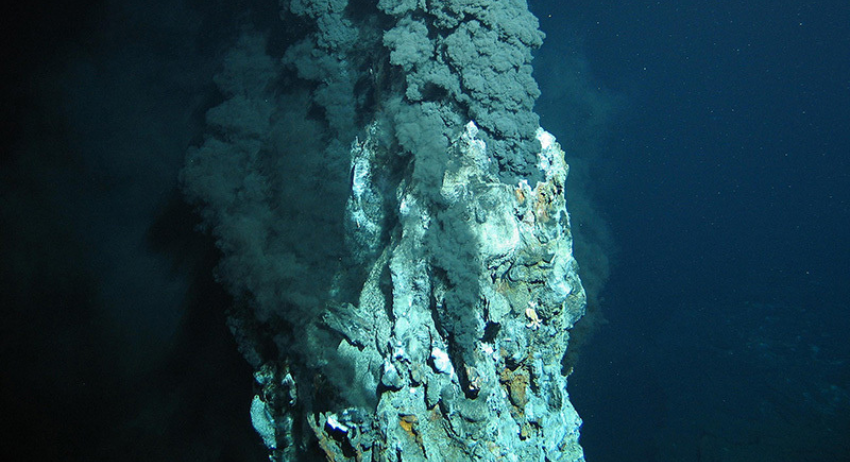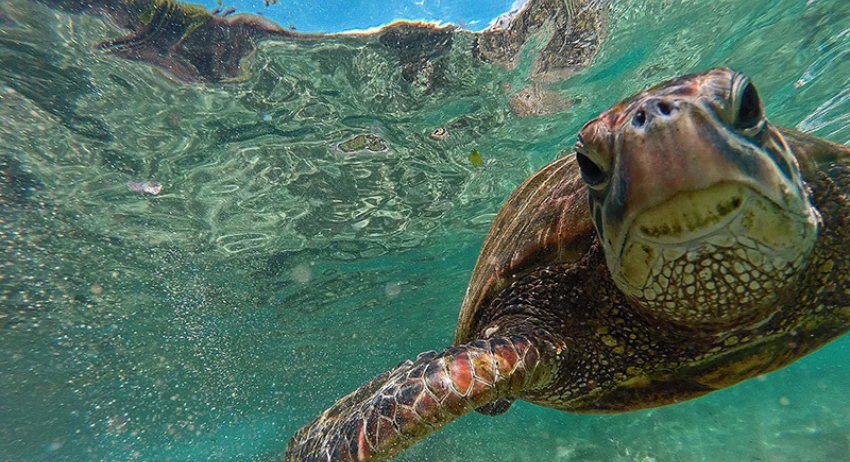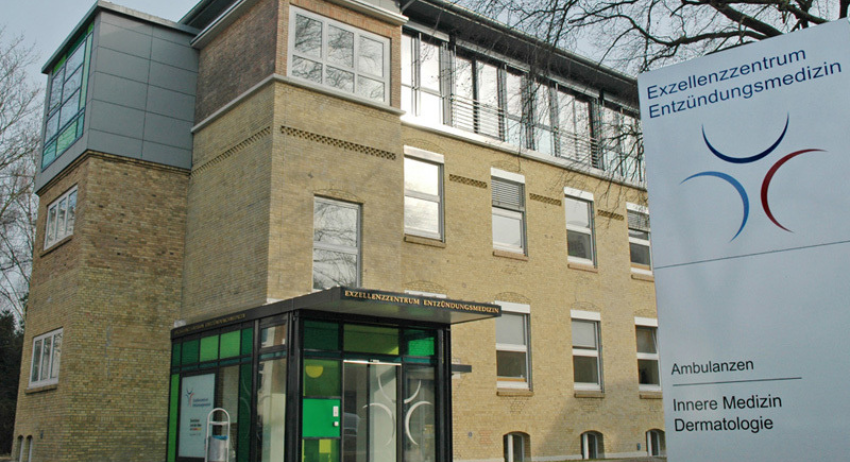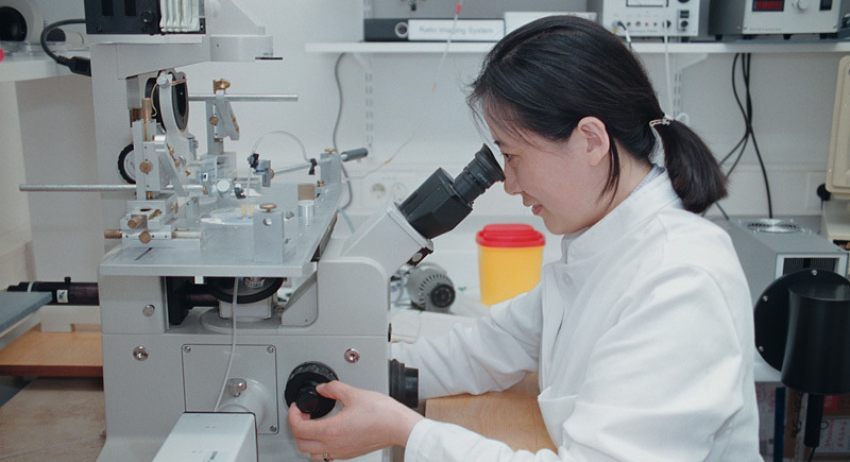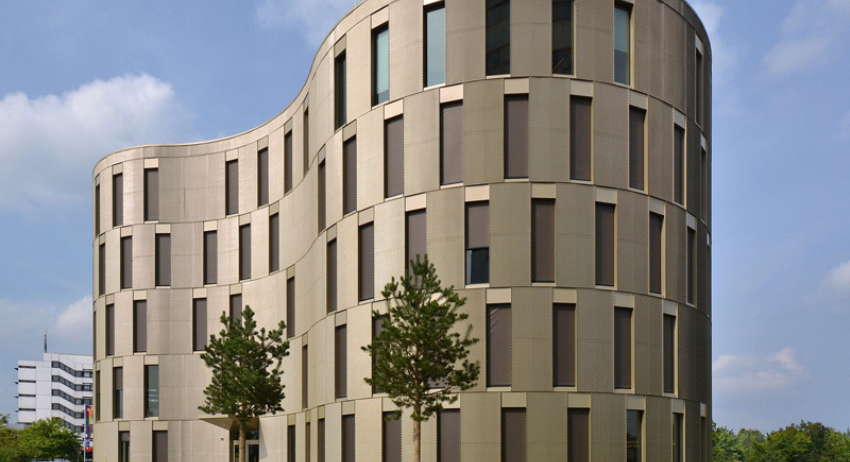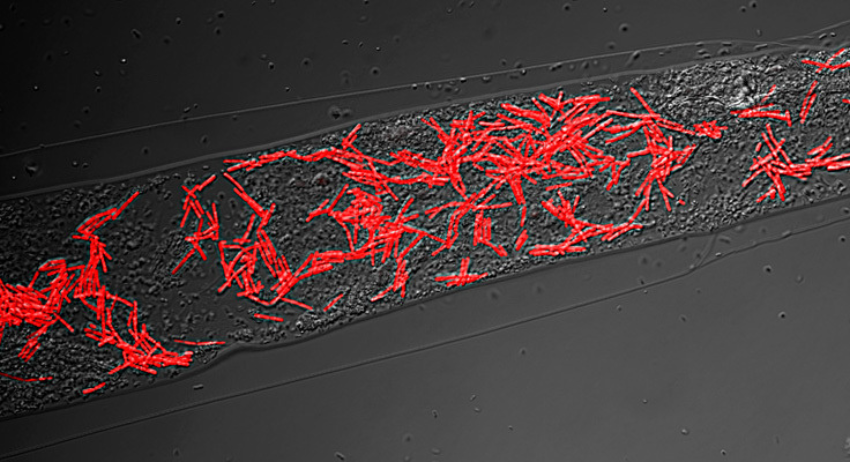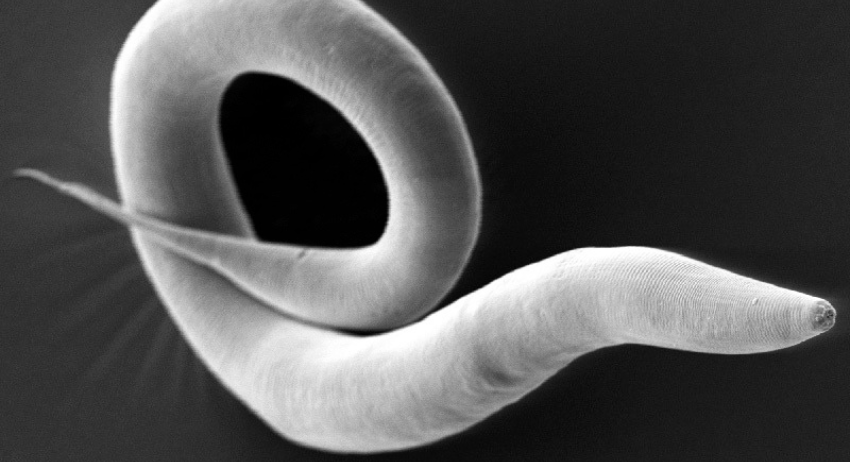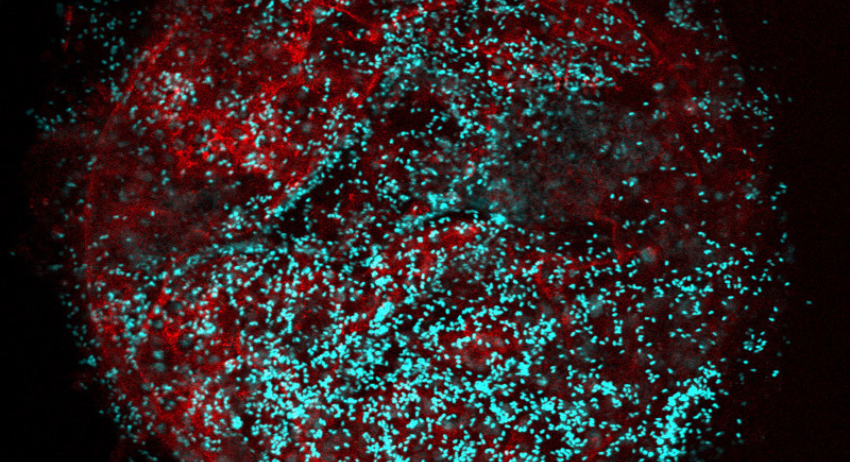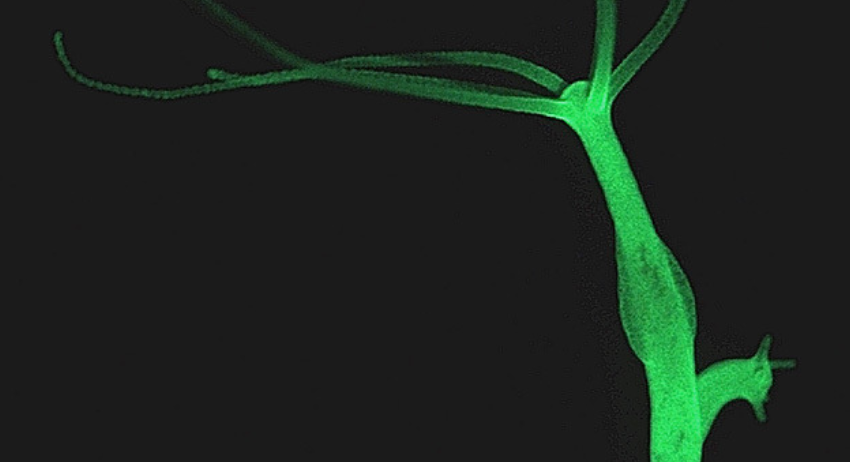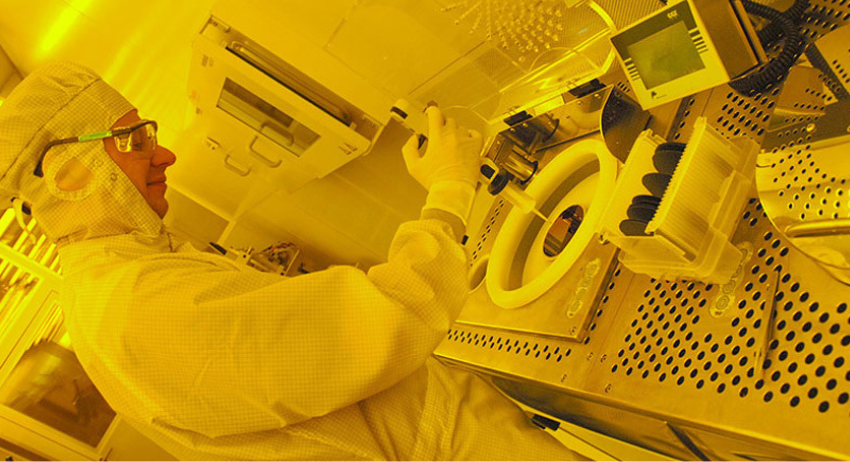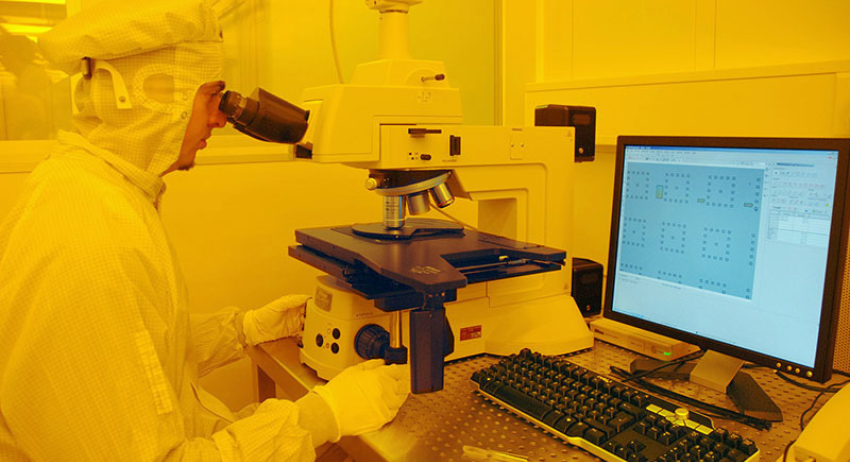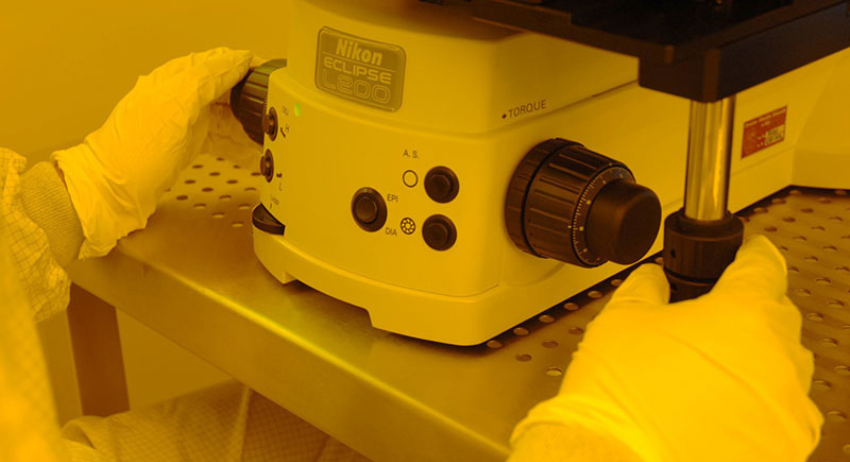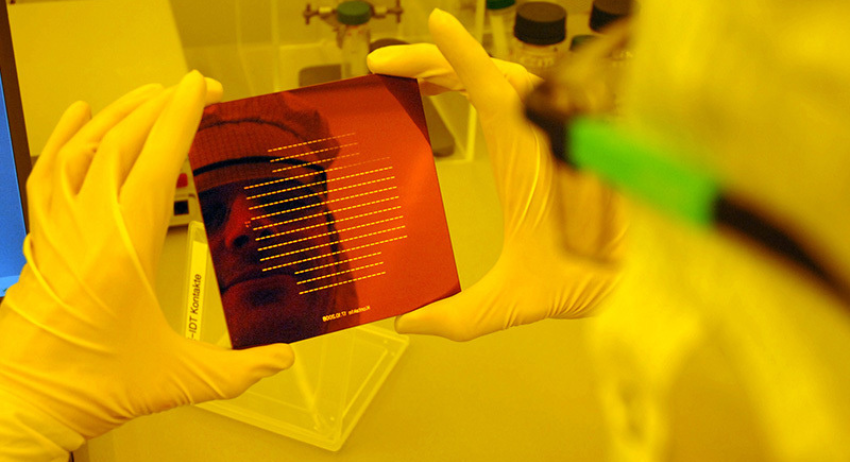Research in Kiel - Progress & Transfer
In Kiel there are a number of renowned institutions that are distinguished by first-class research. The work of these institutions shows that research is of great importance to our society.
The priority research areas are in the fields of marine and geosciences, medicine, nanotechnology and life sciences. Kiel’s researchers use new forms of media technology to forge new pathways in science communication.
THE PRIORITY RESEARCH AREAS
Research between innovation & tradition
Marine and geosciences research
Kiel is a top location internationally in marine and geosciences research. Scientists from many countries are studying the world’s oceans and their changes, the effects of climate change on the oceans as well as the opportunities and risks for humans at the GEOMAR Helmholtz Centre for Ocean Research Kiel and at Kiel University (CAU).
In doing so, they can rely on cutting-edge technology. This ranges from research vessels and state-of-the-art marine engineering instruments, to geoanalysis, bioanalysis, chemical and medical analysis, right through to high-performance computers for complex model calculations.
The close interconnection of the marine sciences and geosciences in Kiel with the legal and economic sciences is unique worldwide, which enables findings from marine research to be implemented in these areas as well. These include, for example, problems related to overfishing and maritime law.
COLLABORATIVE RESEARCH
Kiel Institutes
- GEOMAR
- Kiel Marine Science (KMS) at Kiel University (CAU
- Shipbuilding and maritime technology at Kiel University of Applied Sciences (FH Kiel)
EVEN MORE ABOUT THE OCEAN
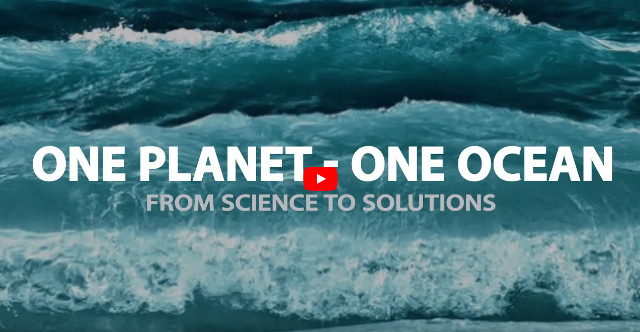
Dialogue, transfer & offshore technology
Marine research in Kiel is part of the Kiel Marine Science (KMS) priority research area. Kiel University (CAU) and GEOMAR cooperate in the Future Ocean network, the successor to the Cluster of Excellence "Future Ocean". The cross-faculty Center for Ocean and Society serves as a platform in which research results are evaluated for practical solution approaches related to the sustainable use of the resources of the oceans and coasts.
In the field of offshore wind turbine technology and in the optimisation of sailing yachts, Kiel University of Applied Sciences (FH Kiel) makes a contribution to marine research. The research group at the Yacht Research Unit Kiel (YRU) uses its own twisted flow wind tunnel. The FINO 3 research platform west of Sylt provides scientists at Kiel University of Applied Sciences with insights for offshore technology.
Future Ocean Network
The world's oceans play a key role in the global climate - they pose dangers, but also offer opportunities in the form of resources. How humans can utilise these opportunities and simultaneously protect the oceans is the subject of the Future Ocean network. It builds on the scientific results and structures of the Cluster of Excellence "Future Ocean" and further develops the Kiel research agenda.
The network pursues a unique research approach in Germany: Marine scientists, geoscientists and economists as well as physicians, mathematicians, lawyers and social scientists pool their expertise and work on projects for a sustainable use of the resources from the ocean, and transfer their results into politics, industry and society.
Medical sciences
In the field of medical sciences, Kiel has an excellent network of all stakeholders in the medical care sector and the healthcare industry. A good network is a prerequisite for good healthcare and a hallmark of the health initiative in Schleswig-Holstein.
THE STAKEHOLDERS
Inflammation research
The Comprehensive Center for Inflammation Medicine (CCIM) at the University Medical Center Schleswig-Holstein (UKSH), a special outpatient clinic of the Cluster of Excellence "Precision Medicine in Chronic Inflammation" (PMI), stands for research and healthcare at the highest level.
Physicians from different disciplines work together on an interdisciplinary basis, including with scientists from fundamental research. They use a common infrastructure, comprising the institutes of the UKSH at the Kiel and Lübeck sites, as well as the Research Center Borstel – Leibniz Lung Center (FZB) and the Max Planck Institute for Evolutionary Biology in Plön.
Centre for Molecular Biosciences
The Centre for Molecular Biosciences (ZMB) was completed in 2012 in close proximity to the biology tower on the grounds of Kiel University (CAU). The ZMB marks a milestone in the Kiel scientific landscape, as it provides all the molecular biology working groups at Kiel University with shared high-performance equipment.
In addition, the transfer of technology from research to application is facilitated in this building. In this way, university structures are organised on a results-oriented and situational basis, in order to be prepared for the ever-increasing demands of scientific competition.
Evolutionary biology
In 2010, the first International Max Planck Research School (IMPRS) in Schleswig-Holstein was launched as a joint project by Kiel University, the Max Planck Institute for Evolutionary Biology in Plön and the GEOMAR Helmholtz Centre for Ocean Research Kiel.
The school
Partners
International think tanks
The International Max Planck Research School (IMPRS) is an international graduate school operating in English, which is dedicated to intensive research and training in all current fields of evolutionary biology. The graduate school offers doctoral researchers with a focus on evolutionary biology an interactive forum for the exchange of new ideas and research results. The study programme covers a wide variety of research topics, including molecular evolution, behavioural biology, evolutionary theory, mathematical modelling and the evolution of organisms.
Sound education
The structured programme of the International Max Planck Research School (IMPRS) not only includes the own scientific work, but also support by a "thesis advisory committee" (TAC) and an individually-tailored programme of laboratory and soft skills courses, workshops or seminars. The training is supplemented by scientific presentations and participation in conferences.
Nanosciences
Transparent films that are conductive and thereby use sunlight to generate energy, or ship hulls that no longer rust due to nanocoating – nanotechnology offers numerous surprising solutions for a diverse range of applications.
Details, which are only a millionth of a millimetre in size: This is what the priority research area "Kiel Nano, Surface and Interface Science" (KiNSIS) at Kiel University (CAU) is working on.
ADDITIONAL INFORMATION
Partners
A lot of expertise is required
The priority research area "Kiel Nano, Surface and Interface Science" (KiNSIS) bundles the research of a large number of working groups that aim to understand systems on the nanometre scale. In addition to the fundamentals of such systems, this includes the investigation of their interaction with the environment and the application-related implementation of these findings.
In addition to scientists from Kiel University (CAU), experts from non-university institutions such as the Leibniz Institute for Science and Mathematics Education (IPN), the Fraunhofer Institute for Silicon Technology (ISIT) and the Helmholtz-Zentrum Geesthacht Centre for Materials and Coastal Research (HZG) are also involved.
Understanding & implementing principles at nano level
The intensive, interdisciplinary cooperation between physics, chemistry, engineering and life sciences aims to understand the systems in their quantum physics dimension and to implement the findings in an application-oriented manner.
Molecular machines, innovative sensors, bionic materials, quantum computers, advanced therapies and much more could be the result.




